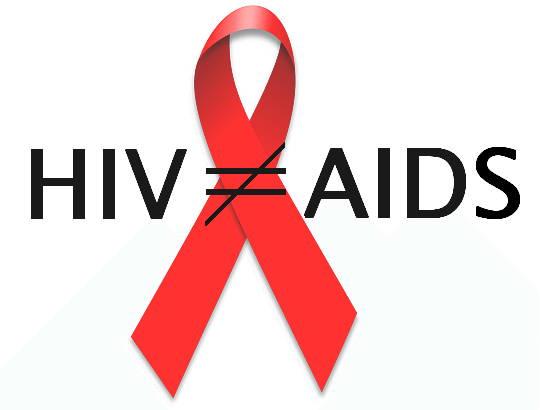Treatment Of HIV/AIDS!
HIV/AIDS
Acquired immunodeficiency syndrome (AIDS) is a chronic, potentially life-threatening condition caused by the human immunodeficiency virus (HIV). By damaging your immune system, HIV interferes with your body's ability to fight the organisms that cause disease.
HIV is a sexually transmitted infection (STI). It can also be spread by contact with infected blood or from mother to child during pregnancy, childbirth or breast-feeding. Without medication, it may take years before HIV weakens your immune system to the point that you have AIDS.
There's no cure for HIV/AIDS, but there are medications that can dramatically slow the progression of the disease. These drugs have reduced AIDS deaths in many developed nations.
Symptoms
The symptoms of HIV and AIDS vary, depending on the phase of infection.
Primary infection (Acute HIV)
Most people infected by HIV develop a flu-like illness within a month or two after the virus enters the body. This illness, known as primary or acute HIV infection, may last for a few weeks. Possible signs and symptoms include:
Fever
Headache
Muscle aches and joint pain
Rash
Sore throat and painful mouth sores
Swollen lymph glands, mainly on the neck
These symptoms can be so mild that you might not even notice them. However, the amount of virus in your bloodstream (viral load) is quite high at this time. As a result, the infection spreads more easily during primary infection than during the next stage.
Clinical latent infection (Chronic HIV)
In some people, persistent swelling of lymph nodes occurs during this stage. Otherwise, there are no specific signs and symptoms. HIV remains in the body and in infected white blood cells.
This stage of HIV infection generally lasts around 10 years if you're not receiving antiretroviral therapy. But sometimes, even with this treatment, it lasts for decades. Some people develop more severe disease much sooner.
Symptomatic HIV infection
As the virus continues to multiply and destroy your immune cells — the cells in your body that help fight off germs — you may develop mild infections or chronic signs and symptoms such as:
Fever
Fatigue
Swollen lymph nodes — often one of the first signs of HIV infection
Diarrhea
Weight loss
Oral yeast infection (thrush)
Shingles (herpes zoster)
Progression to AIDS
Thanks to better antiviral treatments, most people with HIV in the U.S. today don't develop AIDS. Untreated, HIV typically turns into AIDS in about 10 years.
When AIDS occurs, your immune system has been severely damaged. You'll be more likely to develop opportunistic infections or opportunistic cancers — diseases that wouldn't usually trouble a person with a healthy immune system.
The signs and symptoms of some of these infections may include:
Soaking night sweats
Recurring fever
Chronic diarrhea
Persistent white spots or unusual lesions on your tongue or in your mouth
Persistent, unexplained fatigue
Weight loss
Skin rashes or bumps
When to see a doctor
If you think you may have been infected with HIV or are at risk of contracting the virus, see a health care provider as soon as possible.



+1.svg)
